
SDG 9: Industry, Innovation and Infrastructure
HKUST recognizes the importance of sustainable industrial practices, technological advancements, and R&D in fostering innovation and promoting sustainable industries. We equip students with knowledge to contribute to resilient infrastructure and inclusive industrialization while encouraging interdisciplinary projects supported by our state-of-the-art research infrastructure and expert faculty with focus on sensors.
Curriculum
37 related courses were offered in the 2023-24 academic year.
Research
According to Science Direct, from 2020 to 2024, HKUST published 835 research papers addressing SDG 9.
23.35% of them are in the top 10% cite score and 71.3% are internationally co-authored.
Research Highlights
Digital Twin-empowered Landslide Emergency Risk Management
Amid the increasing frequency and intensity of extreme rainstorms under climate change and the enduring landslide activities triggered by strong earthquakes, new landslide emergency risk management theories and technologies are urgently needed to ensure public safety and sustainable development. To address the pressing issue, Prof. Zhang Limin’s project is set to (1) develop a digital twin of Hong Kong for sensing, simulating, and visualizing landslide hazard processes and for coordinating societal responses, and (2) create a new paradigm for managing hazard emergency risks in the digital era.
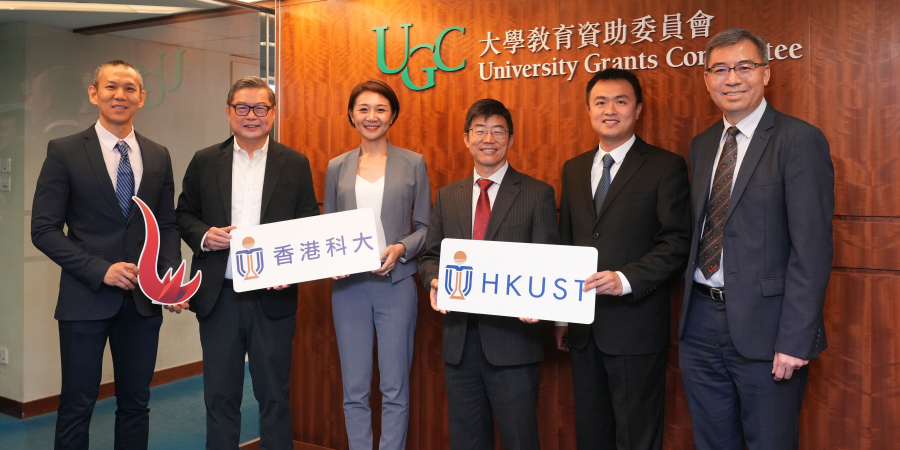
Biomimetic Olfactory Chips
A research team led by the School of Engineering of the Hong Kong University of Science and Technology (HKUST) has addressed the long-standing challenge of creating artificial olfactory sensors with arrays of diverse high-performance gas sensors. This innovative configuration enables exceptional sensitivity and accuracy in gas detection, paving the way for applications in environmental monitoring, food safety, and advanced robotics.

A comparison of the mammalian olfactory system and a biomimetic olfactory chip system.
Microprinter for Ultrafast Piezoelectric Material Printing
A research team led by The Hong Kong University of Science and Technology (HKUST) has developed a microprinter that can print piezoelectric films 100 times faster to produce microelectromechanical systems (MEMS) for sensors, wearable or implantable medical devices, offering the possibility to lower the mass production costs. This cutting-edge device is poised to transform the landscape of microelectromechanical system (MEMS) fabrication, particularly for sensors, wearable devices, and implantable medical tools. By harnessing an electrostatic field to propel ink streams efficiently onto platforms, the microprinter ensures rapid manipulation of thin film patterns, thereby addressing key challenges in mass production and structure control.
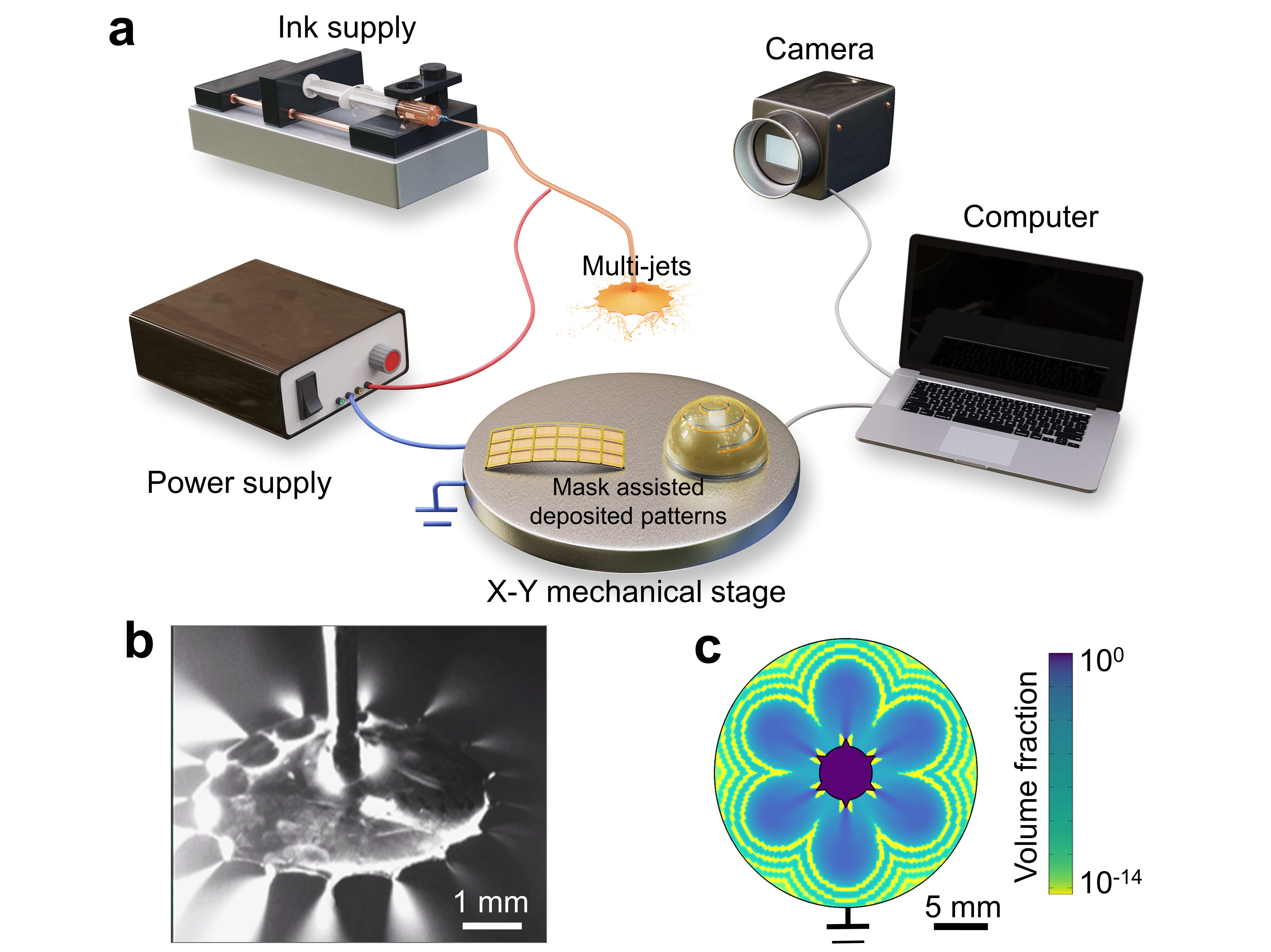
Schematic of electrostatic disc microprinter and multiplexed jetting/tiny droplets from the thin spiny disc.
HKUST Researchers Develop a Versatile, Reconfigurable, and Damage-Tolerant Single-Wire Sensor Array
Researchers from The Hong Kong University of Science and Technology (HKUST) have developed a sensor array design technology inspired by the human auditory system to distinguish sounds. The design developed by the HKUST team, led by Associate Professor YANG Zhengbao from the Department of Mechanical & Aerospace Engineering, assigned a unique frequency to each sensor unit and using the sensor unit signal to modulate the amplitude of the frequency signal. This innovative sensor array approach could optimize the application of sensor arrays in fields such as robotics, aviation, healthcare, and industrial machinery.

Comparison of sensor array schemes, fabricated 10 × 10 nonstretchable pressure sensor array and multimodal pressure-temperature sensor array prototypes.
Policy
Intellectual Property Policy
The Intellectual Property Policy sets out HKUST’s general approach and requirements in relation to, among other things, the creation, invention, ownership use, dissemination, publication, protection, commercialisation, distribution of commercialisation revenue, infringement and/or other exploitation of Intellectual Property that is created.
Collaboration
Tsinghua University
In a significant academic partnership, researchers from HKUST and Tsinghua University have proposed an innovative mechanism for electrically controlling magnetic patterns in advanced materials (altermagnets) using electricity. This breakthrough addresses the longstanding challenge of achieving fast and high-capacity memory devices, which has been limited by previous switching angles. The findings, published in Science Advances, pave the way for the development of ultrafast memory devices that could greatly enhance data processing speeds and storage density, marking a substantial advancement in the field of antiferromagnetic spintronics.
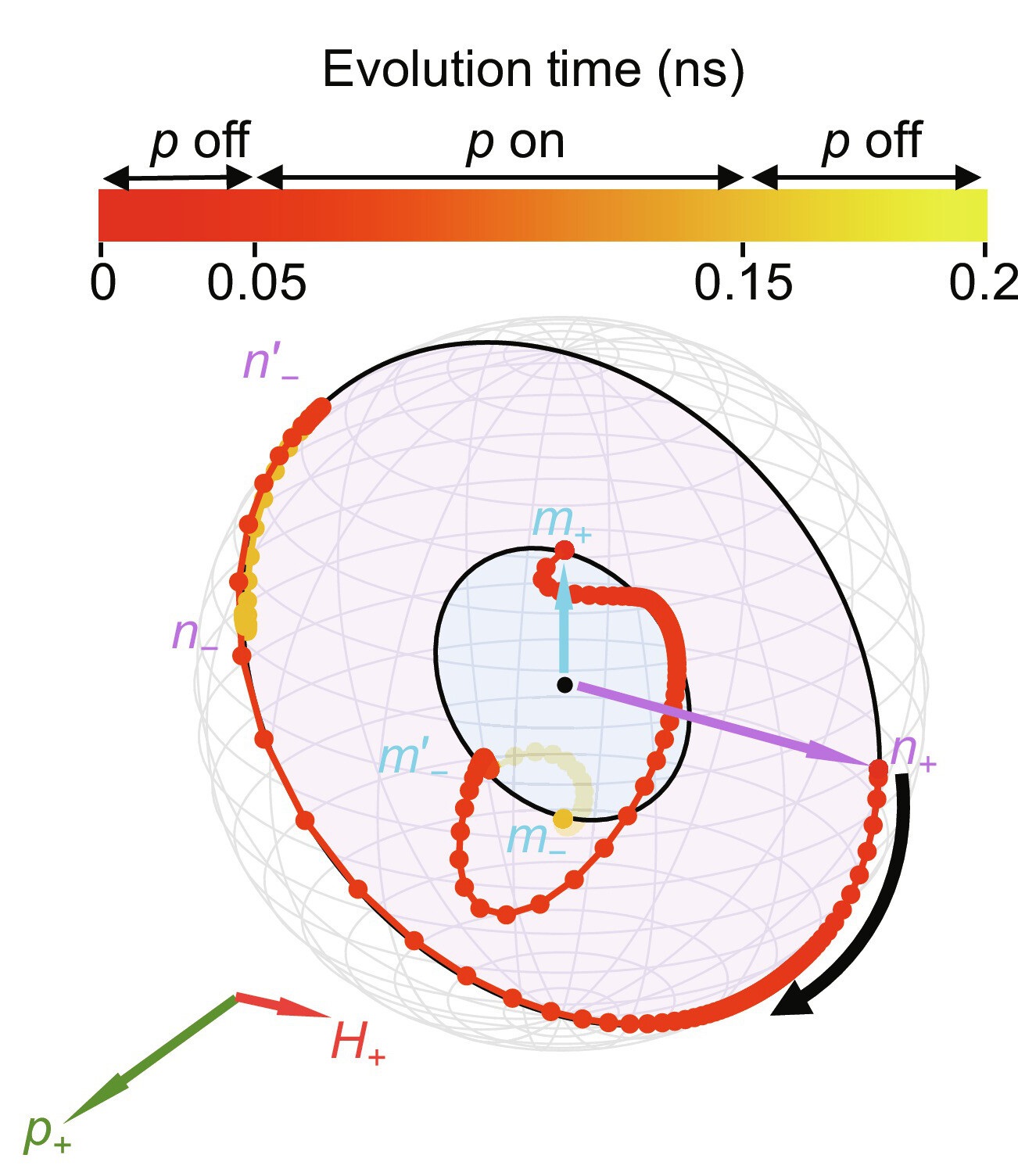
Atomic spin simulation of Néel vector n in antiferromagnet Mn5Si3.
Tongji University
Following the establishment of an undergraduate student exchange agreement last year, HKUST and Tongji University are deepening their collaboration in talent development, scientific research, and international partnerships. This initiative aims to foster a robust academic environment that encourages knowledge sharing and innovation between the two prestigious institutions. By working together, they seek to cultivate a new generation of skilled professionals equipped to tackle global challenges through interdisciplinary education and research initiatives.
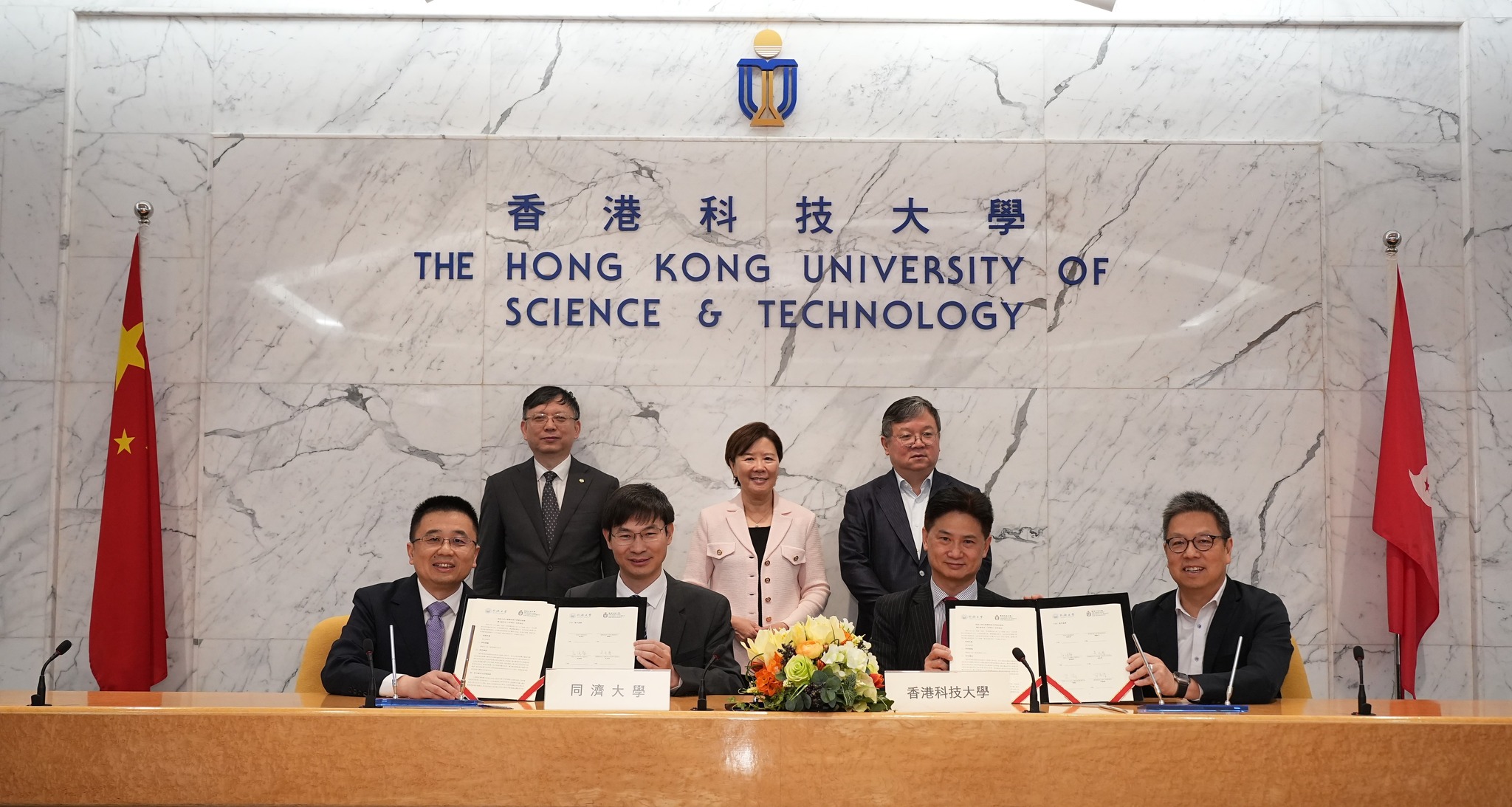
Tongji University signed joint training programs with the School of Engineering and the School of Business and Management at HKUST.
Mohamed bin Zayed University of Artificial Intelligence (MBZUAI)
The delegation met with HKUST Provost Prof. GUO Yike and Vice President for Institutional Advancement Prof. WANG Yang to explore aligned strategic focuses in sustainability, decarbonization, robotics, computer science and bioscience. With HKUST’s expertise in science, engineering and AI, paired with MBZUAI’s leadership in AI research and education, the potential for impactful collaboration is immense. By combining strengths, joint academic programs and curriculum development will help nurture the talent needed to harness AI for global good.
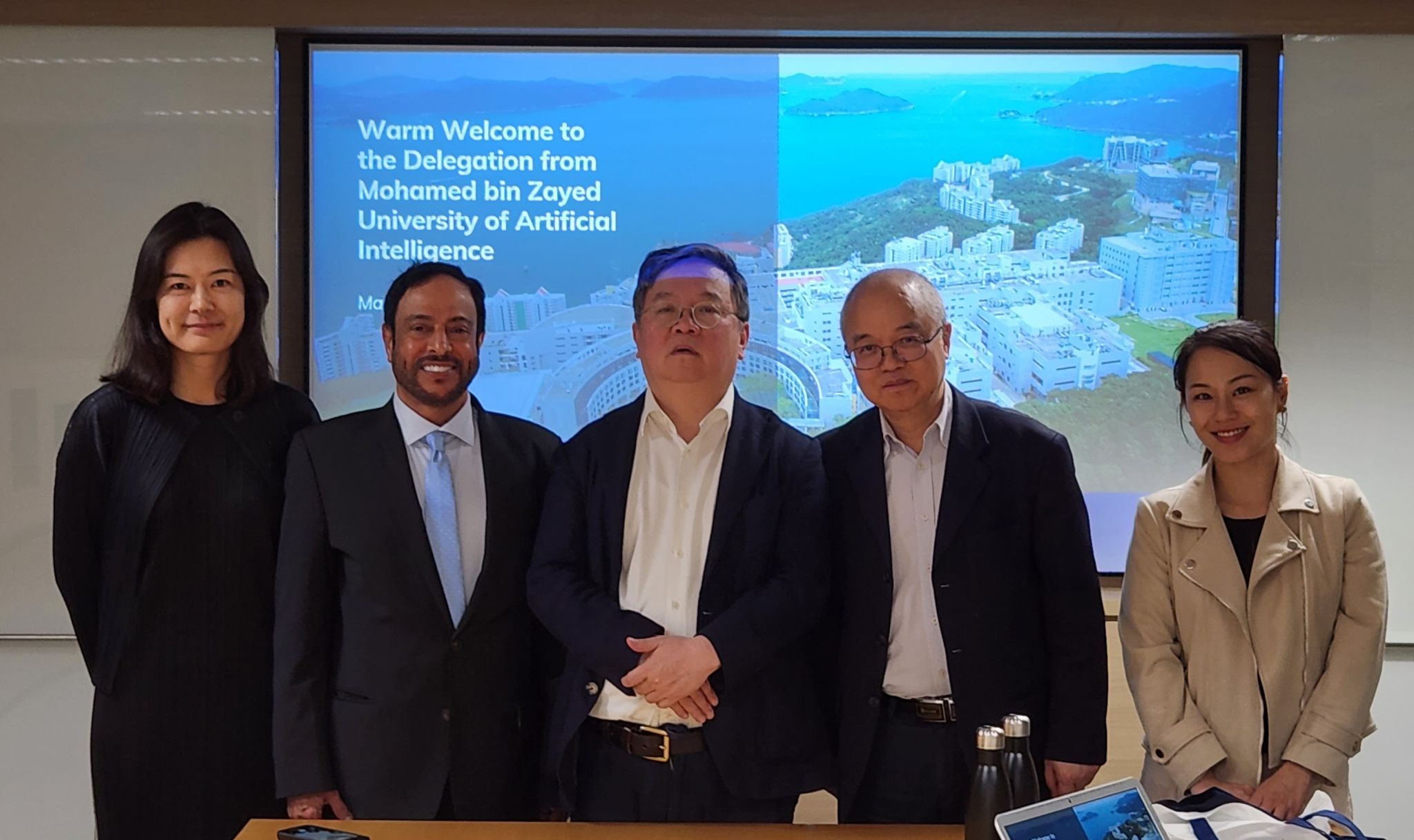
King's Flair
The Hong Kong University of Science and Technology (HKUST) and King’s Flair Development Limited (KF) celebrated the inauguration of the “HKUST-KF Joint Laboratory for Sustainable Technologies” (Lab). With the launch of the Lab, HKUST and KF will collaborate to explore frontier research and applications in the areas of sustainable technologies and materials, carbon reduction and re-industrialization.
The joint effort aims to develop innovative technologies that promote sustainable living environments and address the increasingly severe environmental issues caused by climate change, in support of Hong Kong’s carbon neutrality and national dual-carbon goals.
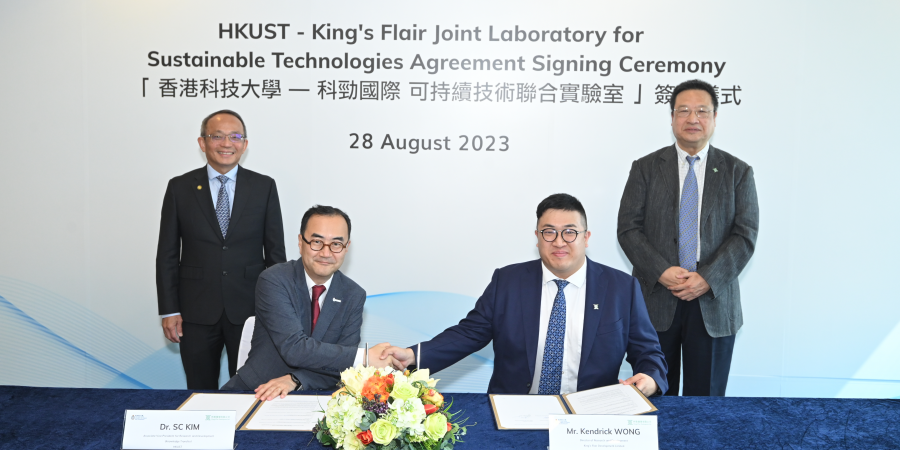
Collaboration with the Government
HKUST Dean of Engineering, Prof. LO Hong Kam, received the honour and privilege from the Hong Kong government to serve on the Aviation Development and Three-Runway System Advisory (3RS) Committee. In this essential role, he is to give strategic advice for the Government on different policies of the Hong Kong’s civil aviation sector, the implementation of the Three-Runway System (3RS) and other operational matters at the Hong Kong International Airport (HKIA). Furthermore, Prof. LO Hong Kam will also be at the centre of the preparation and planning of future developments to promote Hong Kong as a centre of international and regional aviation. Through this role, HKUST continues to strengthen its collaboration with the government and take initiatives that align with Hong Kong’s industrial and infrastructural goals.
Community Engagement
AUA Youth Forum
Held from January 6-12, centered on the theme “Building a Better Future: Inspiring Youth for Sustainable Habitat”, brought together 45 students from 14 renowned AUA member universities across Asia to delve into the challenges, opportunities, and actions required for creating a sustainable future. The forum offered a comprehensive program featuring insightful talks, interactive workshops, thought-provoking panel discussions, and sharing sessions. These sessions were led by HKUST professors, sustainability experts, and young entrepreneurs, with a focus on addressing pressing environmental challenges such as climate change, solid waste management, carbon neutrality, etc. The aim was to inspire the next generation leaders to act and contribute to the creation of a sustainable living environment.
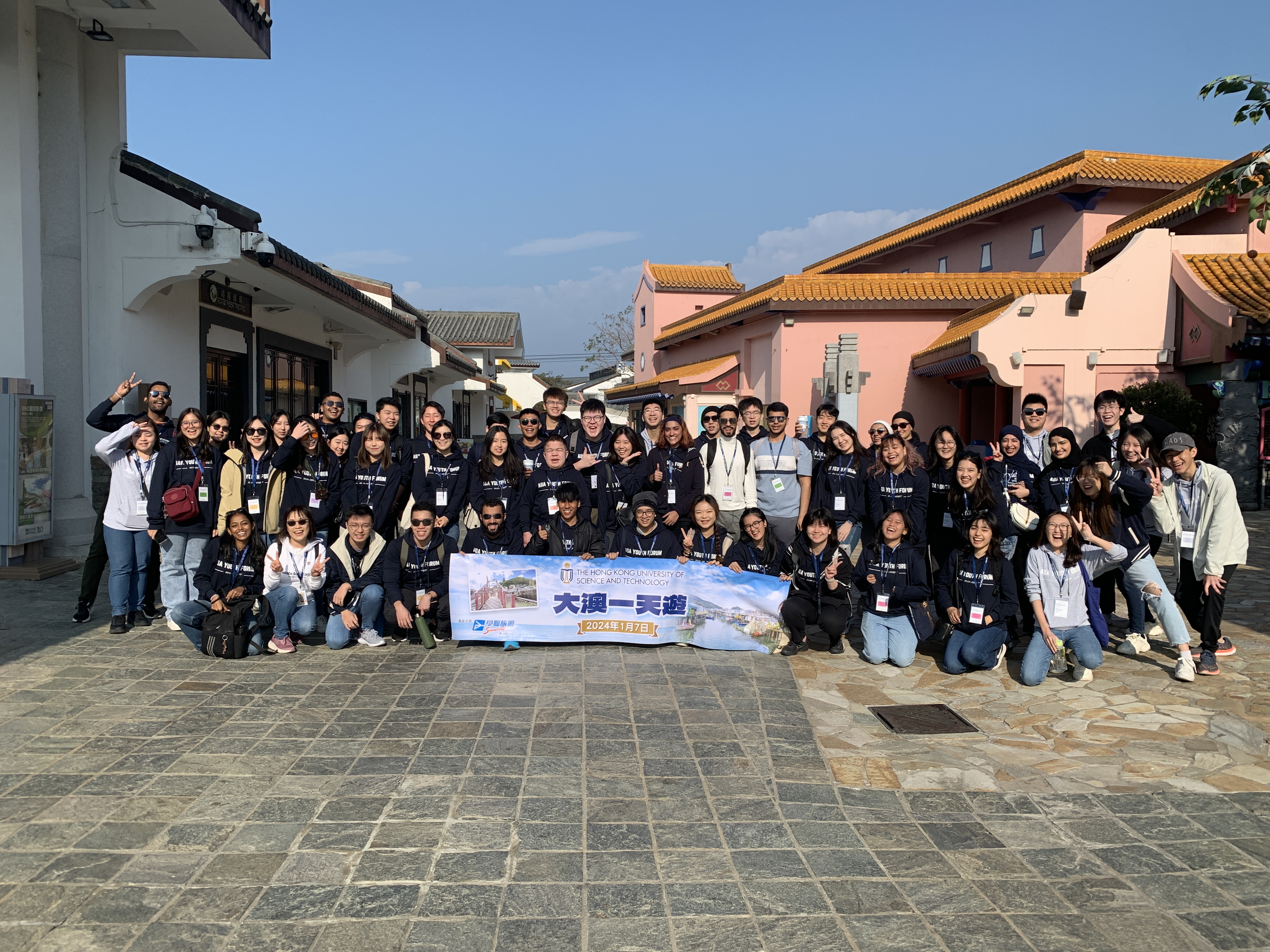
Participants visited Tai O to explore the local culture.
HKUST Dream Builder Program
The HKUST Entrepreneurship Center holds various incubation programs for start-ups, including the Dream Builder Incubation Program which offers funding, coaching, training, mentorship, and in-kind support to aspiring entrepreneurs in developing innovative startups.
Innovation Support
Redbird Innovation Fund
A HK$500 million initiative to create multiple Venture Investment Fund (VIFs) worth HK$2 billion in collaboration with investment partners, to support HKUST start-ups. HKUST committed HK$200 million as the first tranche of the HKUST Redbird Innovation Fund and is now inviting investment managers to match and co-establish multiple VIFs in support of the HKUST start-up ecosystem, covering companies from the early stage to the scaling phase in key deep tech domains such as artificial intelligence, semiconductors and robotics, new materials, energy and sustainability, biomedical and healthcare.
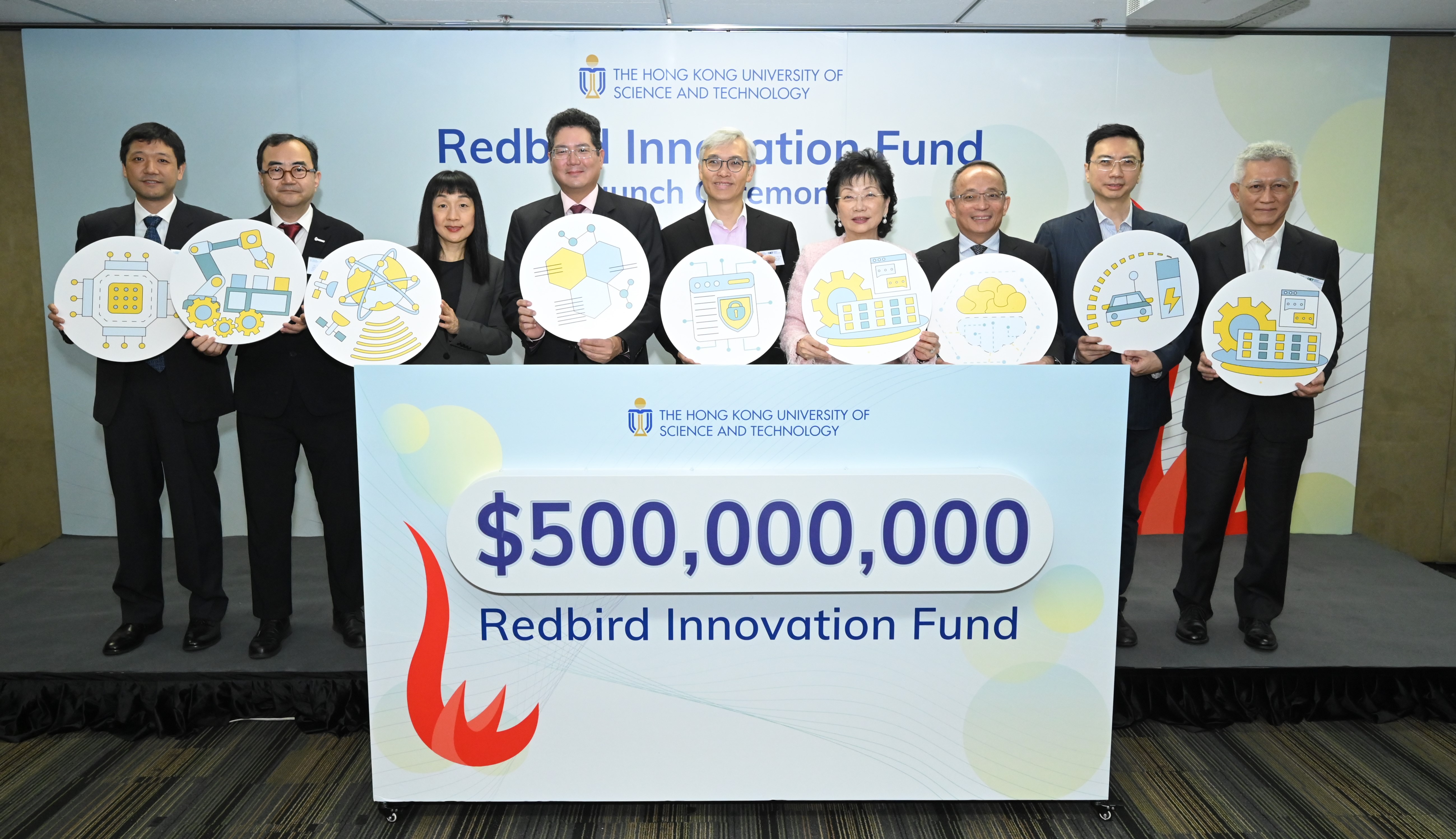
Events
Unicorn Day
HKUST's annual Unicorn Day returned with an expanded scope and scale. Featuring an impressive exhibition of over 100 HKUST’s cutting-edge technologies spanning Electronics, AI and Smart Systems; Material, Energy and Sustainability, and Bio-Medical and Healthcare and a series of activities, the event attracted over 1,000 distinguished guests to campus, including 6 legislators, representatives from 9 consulates general, as well as many business leaders, government officials, potential investors, and other key stakeholders.

HKUST alumnus and Founder of Arctic Vision Dr. Eddy WU (left) presents his innovations to distinguished guests.
Sustainable Smart Campus as a Living Lab
Centralized Platform for Accessing Information
Additionally, the Living Lab supported the USThing Extension project, a mobile application aimed at enhancing the campus experience for students, faculty, and staff. The app serves as a centralized platform for accessing important information (e.g. class schedules, grades and library resources), navigating the campus, staying updated on events, and utilizing various services, ultimately enhancing the overall experience for the university community.
